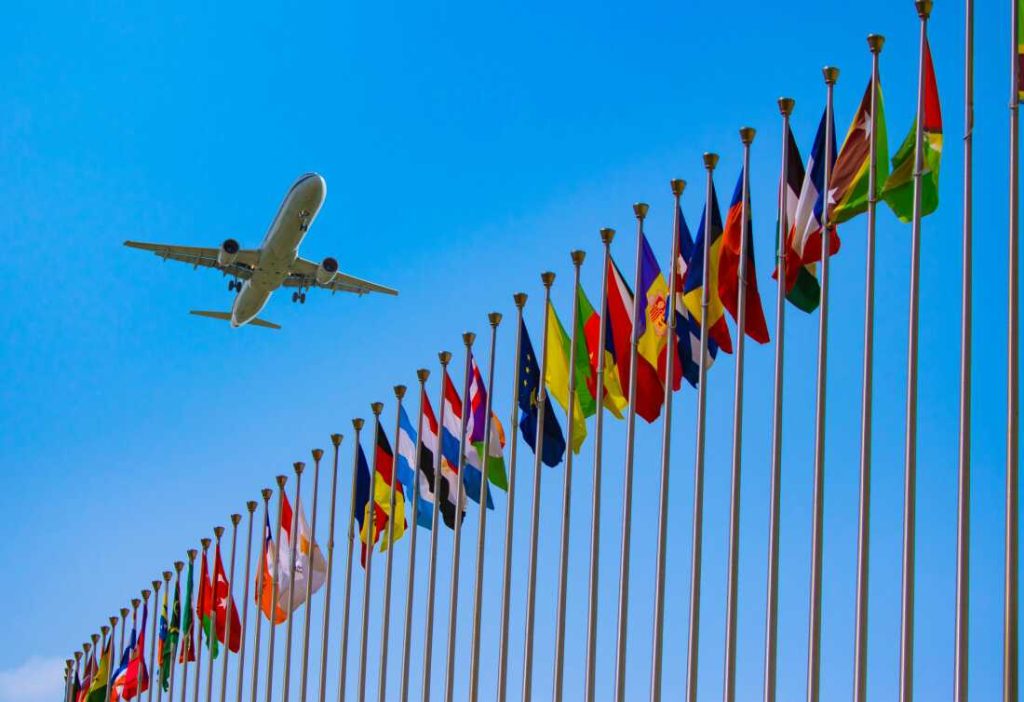Impact of the U.S. Travel Ban on Brazil
By Laiz Rodrigues
As of 07:39 PM EDT on Friday, July 18, 2025, the United States’ imposition of a travel ban on Brazilian Supreme Federal Court (STF) justices, including Alexandre de Moraes, and potentially their family members, marks a significant turning point in Brazil’s domestic and international landscape. This bold move, triggered by the alleged persecution of former President Jair Bolsonaro and the recent police raid on his home, carries profound implications for Brazil’s political stability, economy, judicial system, and global standing. Here’s a detailed analysis of its impact:
Political Repercussions
The travel ban has ignited a firestorm within Brazil’s polarized political arena. For Bolsonaro’s supporters, particularly the conservative base, this is a vindication of their claims that the STF, under Moraes, has overstepped its authority. Figures like Congressman Marcel van Hattem have seized on the ban to rally support, with social media posts reflecting a surge in pro-Bolsonaro sentiment (“ESTAMOS COM BOLSONARO”). This could bolster efforts to push for amnesty for Bolsonaro and the January 8, 2023, protesters, potentially shifting the balance in Brazil’s Congress.
Conversely, the leftist government of President Luiz Inácio Lula da Silva faces a reality of NO CREDIBILITY. Lula’s administration is considered a disaster, economically, socially or politically. It is filthy, filled with undiscriminated spending corruption, lack of transparency and has the petulance of condemn the ban as an egregious interference in Brazil’s sovereignty. And I ask, what sovereignty? The only person with sovereignty is Lula and the STF. However, the timing—following a U.S. 50% tariff on Brazilian goods and Trump’s letter demanding Bolsonaro’s charges be dropped, must be considered in order to start negotiation, If Lula is perceived as weak as he is, against U.S. pressure, Lula’s government could lose ground, especially if economic fallout intensifies.
The ban also deepens the judicial-political rift. Moraes, a polarizing figure, may double down on his crackdown to assert control, further alienating opponents. This could lead to increased protests, both from Bolsonaro supporters and those opposing STF overreach, risking civil unrest.
Economic Consequences
The travel ban’s economic impact is multifaceted. Directly, it affects the targeted STF justices and their families, many of whom are part of Brazil’s elite and frequent U.S. cities for business, leisure, or education. Losing access to the U.S. market for personal or professional activities could strain their finances and influence, potentially weakening Moraes’ inner circle.
Indirectly, the ban exacerbates tensions from Trump’s recent 50% tariff on Brazilian imports. Brazil’s export-driven economy, with $42.3 billion in goods sent to the U.S. in 2024, faces a double blow. The tariff already threatens sectors like agriculture and manufacturing, and the ban could deter foreign investment if perceived as a signal of escalating U.S.-Brazil hostility. Brazilian officials may retaliate with countermeasures, such as targeting American companies or seeking new trade partners (e.g., China), but this could disrupt the $92 billion U.S.-Brazil trade relationship, hitting Brazilian workers hardest.
Judicial and Legal Implications
The ban places the STF in a precarious position. Moraes’ authority, already questioned for combining investigative and judicial roles, faces international scrutiny. His orders—such as the 2024 nationwide X ban and the recent raid on Bolsonaro—have been cited by the U.S. as evidence of censorship affecting Americans, undermining Brazil’s claim to judicial autonomy. This could prompt internal challenges within the STF, with some justices possibly distancing themselves from Moraes to avoid similar sanctions.
Legally, the ban may embolden Bolsonaro’s legal team to challenge his restrictions, arguing that U.S. action validates their persecution claims. However, it could also push the STF to tighten its grip, issuing more restrictive measures to counter foreign influence, potentially leading to a constitutional crisis if Congress intervenes.
Social and Cultural Effects
Socially, the ban highlights Brazil’s deep divisions. The elite, accustomed to U.S. travel, may feel isolated, fueling resentment toward both the U.S. and their own government. Public opinion, split between support for Moraes’ anti-far-right stance and sympathy for Bolsonaro, could shift as economic pain grows, with rural and conservative regions likely to back the ban as a defense of their hero.
Culturally, the ban reinforces Brazil’s image as a battleground for global ideological struggles. Protests, like the burning of Trump effigies in São Paulo, signal defiance, but also a growing anti-American sentiment that could reshape Brazil’s identity narrative, moving it closer to leftist allies like Venezuela or Cuba.
International Relations
The ban strains U.S.-Brazil relations to a breaking point. Lula’s threat to pursue legal action against Trump and his defense of Brazilian justice clash with the U.S. narrative of defending free speech. This could isolate Brazil diplomatically, pushing it toward non-Western blocs, though its economic ties with the U.S. may limit this shift. Regionally, neighbors like Argentina might align with the U.S. if they share similar concerns about judicial overreach, while others could see Brazil as a victim of American imperialism.
Long-Term Outlook
In the long run, the ban could catalyze reform if it pressures the STF to scale back censorship or if Congress acts to curb judicial power. However, if Lula’s government doubles down, it might entrench authoritarian tendencies, with Moraes as a central figure. Economically, Brazil may diversify trade to mitigate U.S. pressure, but at the cost of short-term instability. Politically, the 2026 elections could hinge on this saga, with Bolsonaro’s ban potentially lifted if his allies gain traction.
In summary, the U.S. travel ban, enacted on Friday, today, is a seismic event for Brazil, amplifying political polarization, economic strain, and judicial tension. While it empowers Bolsonaro’s base, it risks unifying Lula’s supporters against a common foe, setting the stage for a turbulent chapter in Brazil’s history. The nation stands at a crossroads, its response to this foreign intervention shaping its future trajectory.

